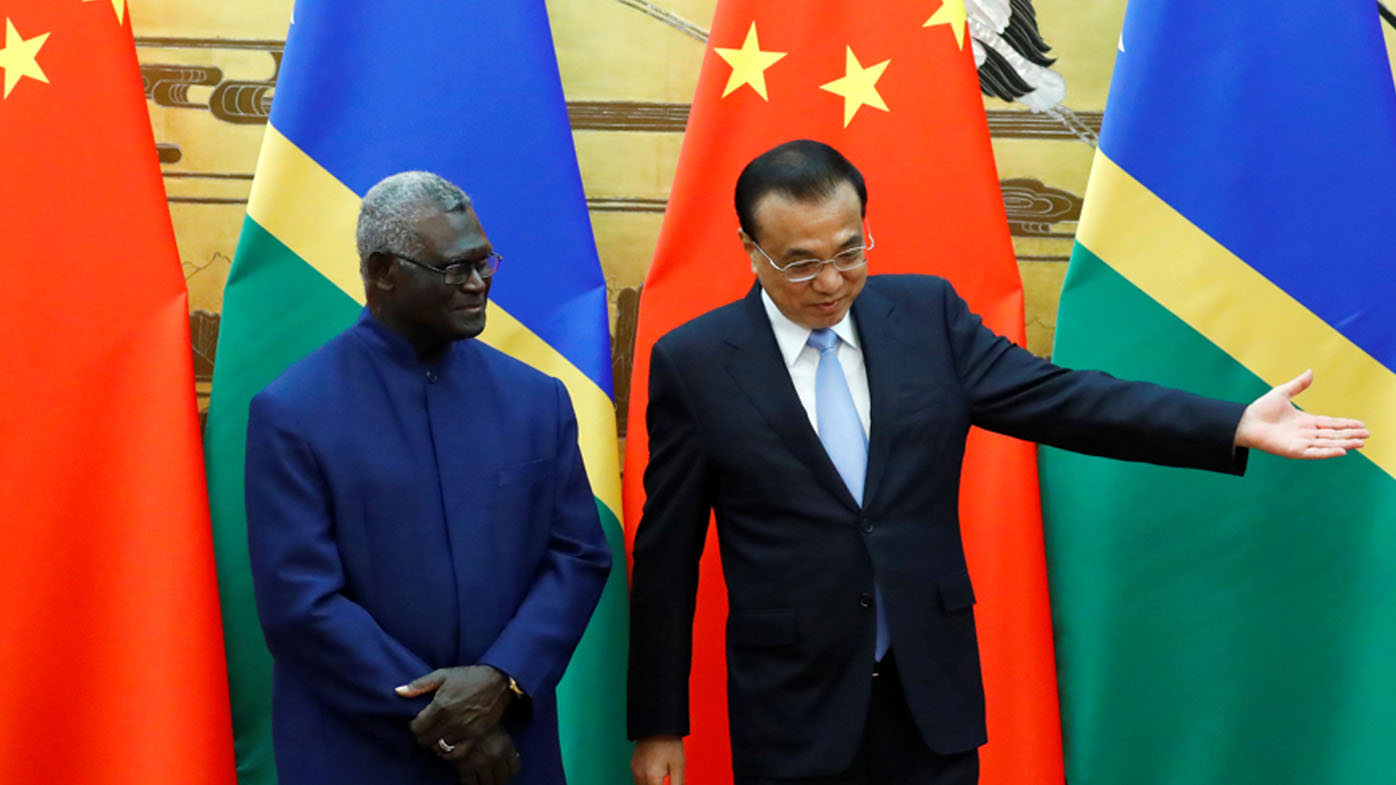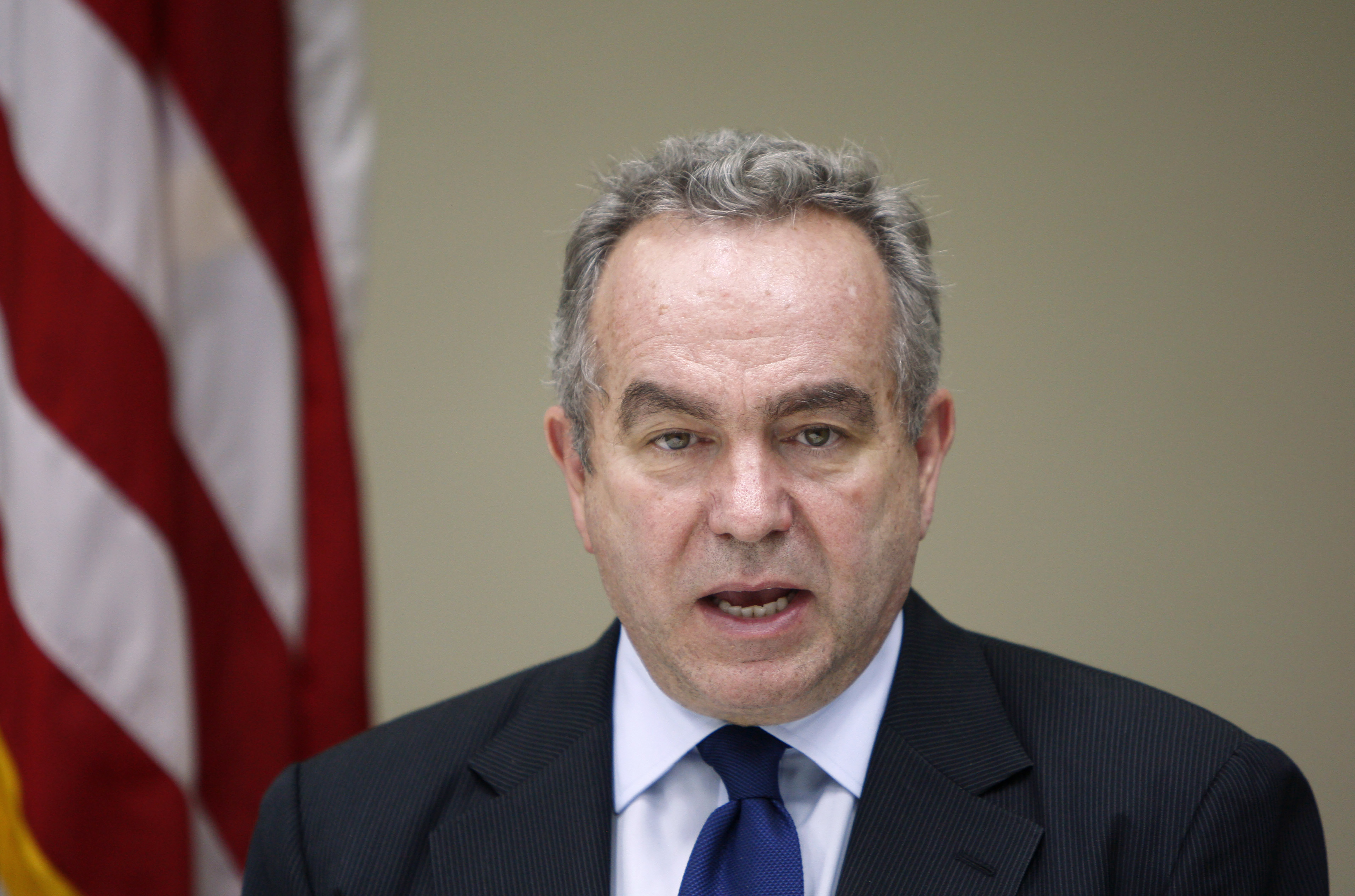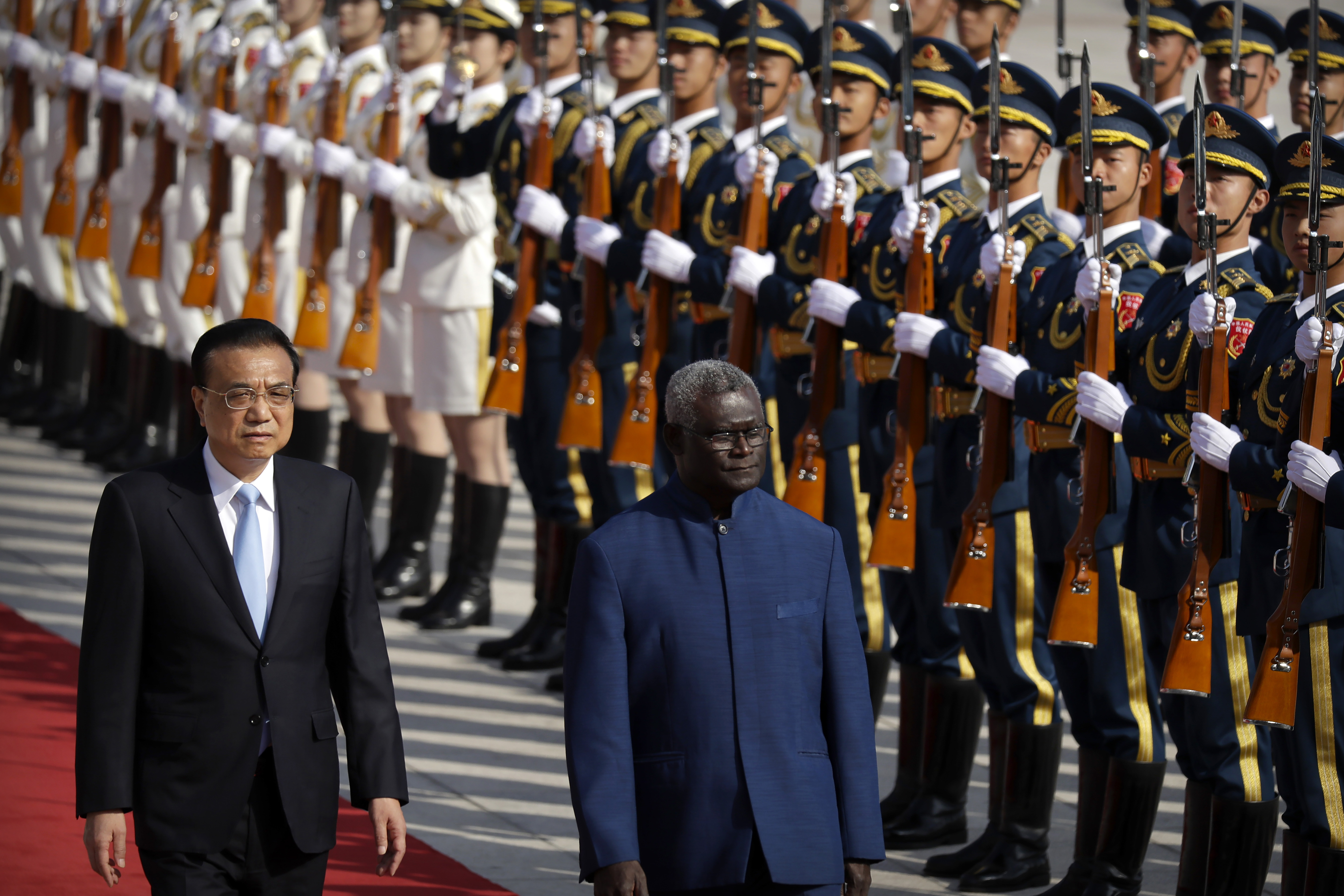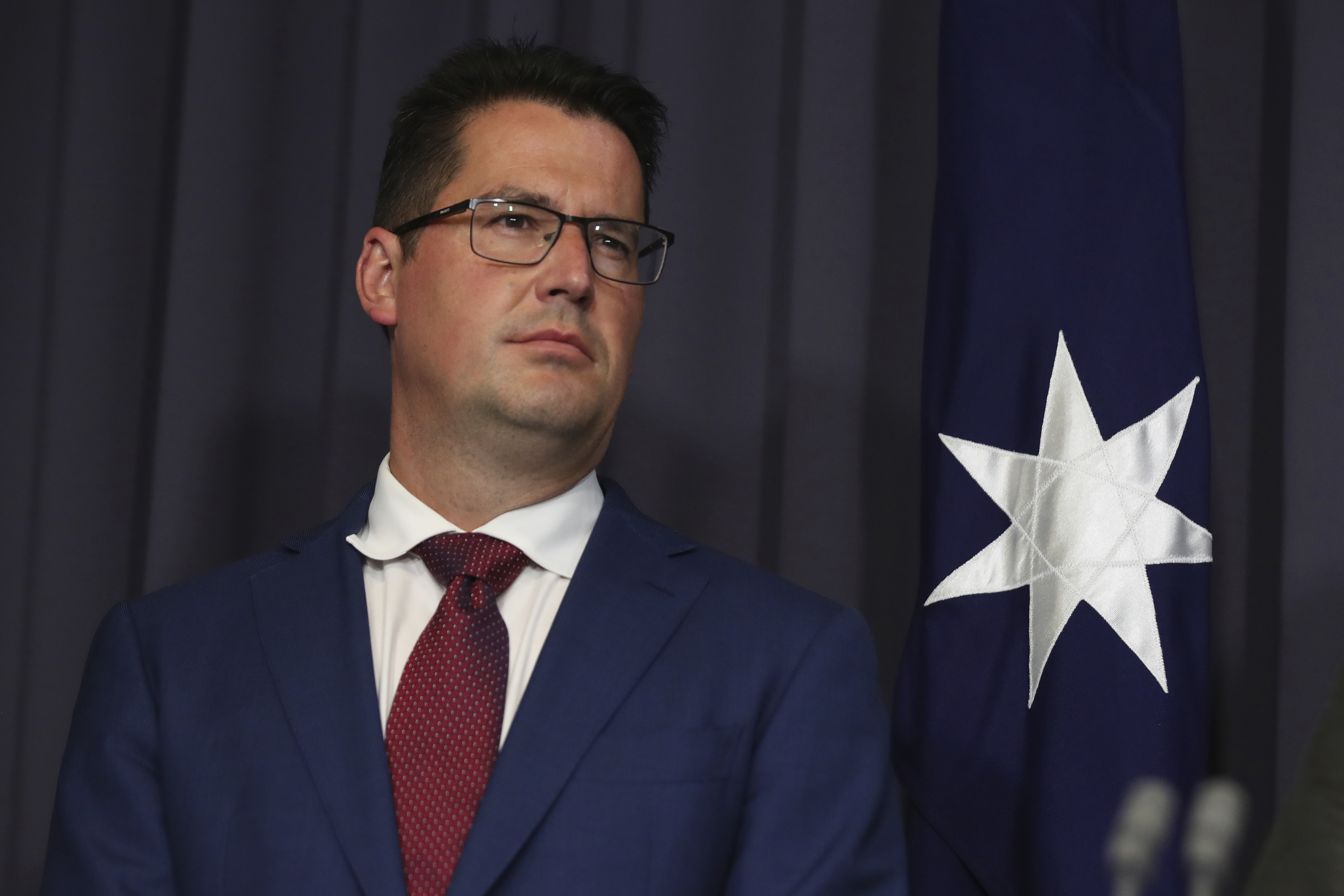Australia is "deeply disappointed" by a controversial security pact signed by the Solomon Islands and China despite major efforts to scupper the deal, which could see the Asian giant establish a military presence in the South Pacific island nation.
Chinese Foreign Ministry spokesperson Wang Wenbin tonight said Foreign Minister Wang Yi and his Solomon Islands counterpart, Jeremiah Manele, officially signed a security agreement "the other day". No specific date was given.
The agreement has been confirmed by Mr Manele, who said Prime Minister Manasseh Sogavare would make a formal announcement in coming days, the ABC reports.
READ MORE: Australian minister makes urgent dash to Solomon Islands
It comes after the US announced a plan to send two top officials to the Solomon Islands, following a visit last week by Australian Senator Zed Seselja.
In a joint statement tonight, Senator Seselja and Foreign Minister Marise Payne said Australia was "deeply disappointed" by the signing of the agreement.
"We are concerned about the lack of transparency with which this agreement has been developed, noting its potential to undermine stability in our region. We continue to seek further clarity on the terms of the agreement, and its consequences for the Pacific region," the ministers said.
"We welcome recent statements from Prime Minister Sogavare that Australia is Solomon Islands security partner of choice, and his commitment that Solomon Islands will never be used for military bases or other military institutions of foreign powers."
https://twitter.com/SenatorWong/status/1516352102834262017
Labor's Foreign Affairs spokesperson Penny Wong accused the Australian government of failing to prevent the pact.
"Despite all of his tough talk, on Scott Morrison's watch our region has become less secure," Senator Wong said.
"His government was warned of this security pact in August and he hasn't even bothered to send the Foreign Minister to the Solomon Islands to raise concerns on behalf of all Australians."
The White House said on Monday that later this week, Kurt Campbell, the National Security Council Indo-Pacific coordinator, and Daniel Kritenbrink, the assistant secretary of state for East Asian and Pacific affairs, would lead a delegation of US government officials to the Solomons, and would also visit Fiji and Papua New Guinea.
A draft of the Solomons and China pact, which was leaked online, said Chinese warships could stop in the Solomons and China could send police and armed forces there "to assist in maintaining social order".
The Solomons has sought to downplay the significance of the agreement and says it won't lead to China establishing a military base there, but many neighbouring countries and Western nations remain worried.
US State Department spokesman Ned Price said the agreement could destabilise the Solomon Islands and would set a concerning precedent for the wider Pacific region.
"Despite the Solomon Islands government's comments, the broad nature of the security agreement leaves open the door for the deployment of PRC (People's Republic of China) military forces to the Solomon Islands," Price said.
Senator Seselja, the Minister for International Development and the Pacific, last week said he met with Mr Sogavare and asked him to abandon the Chinese agreement.
"We have asked Solomon Islands respectfully to consider not signing the agreement and to consult the Pacific family in the spirit of regional openness and transparency, consistent with our region's security frameworks," he said in a statement.
The Solomons portrayed the meeting in a more positive light, saying Mr Sogavare and Senator Seselja held productive discussions regarding the security concerns of the Solomon Islands and the wider Pacific region.
Last week, US Deputy Secretary of State Wendy Sherman spoke with Mr Manele about Washington's plan to reopen an embassy in the capital, Honiara.
The announcement of reopening the embassy, which has been closed since 1993, came in February before the security pact came to light, but amid already growing concerns about Chinese influence in the strategically important country.
Source: 9News






